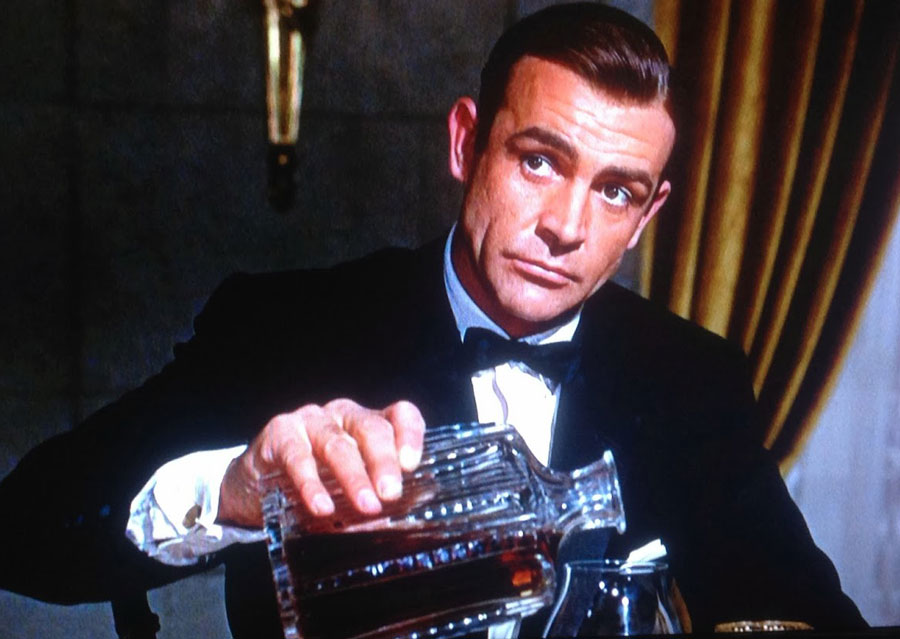Have you ever wondered what happens to your brain when you get plastered on a night out? Besides throwing up in a cab and waking up next to your neighbour’s wife, there’s actually a lot more going on when it comes to drinking. The smart cookies at IFL recently teamed up with science writer Stephen Braun to uncover the four all-too-familiar stages of drinking. Le sigh.
It’s All Good…At The Beginning
Friday night doesn’t start until there’s an alcoholic beverage in your hand (and Marky Mark’s playing in the background). Alcohol is considered a drug as it can alter brainwave patterns.
The effect of this drug however is solely reliant on the amount consumed and at what rate. And whilst standard drugs focus stimulation in one key area of the body, alcohol is the complete opposite. Braun tells IFL that “alcohol is like the hand grenade or a bomb. It blows up and goes everywhere”.
When alcohol in consumed, ethanol goes straight to your stomach where it is then picked up by the bloodstream and carried throughout the body. “Your body responds to alcohol as if you’ve taken a very nasty poison and its geared to get rid of it,” says Braun.
Your liver then attempts to break the ‘poison’ down by producing an enzyme called alcohol dehydrogenase, a chemical which converts alcohol into acetaldehyde. That acetaldehyde which usually has a hand in the common hangover, is then further broken down into acetic acid. In English, this all means that if you drink more alcohol than your liver can process, you’ll start to get drunk. Ever heard of that saying “lining your stomach”? The degree of one’s drunkenness is also based on how much you’ve eaten prior.
“In the first half an hour or so of drinking, you’re going to experience stimulating effects and euphoria,” says Braun. “Alcohol reduces your inhibitions and will release a little dopamine – the brain’s big reward molecule – so you’re going to feel good.”
The Great Depression
Ok – maybe not that bad. But you’re body is now beginning to feel the effects of the excess drinks. You’re clumsier, your speech slurs and your reaction to things are beginning to wane. This is the point where complex stuff like Gamma-Aminobutyric Acid (GABA) starts to seep into other parts of the brain, causing depressive effects.
Braun warns that “this isn’t the time to make important decisions”.
“This is because alcohol depresses the behavioural inhibitory centres in the cerebral cortex, making you more likely to do things, or someone, that you wouldn’t if you were sober.”
The Pissing Game
Incessant urinating is the next stage and you’ll often find yourself returning to the bathroom a lot more when you’re drunk. The reason behind this is that your liver is working overtime to push alcohol out of your body. To get scientific, the alcohol stops an antidiuretic hormone called vasopressin in your body.
Vasopressin is what usually keeps the body’s kidneys from releasing too much fluid and to replenish the body with water. Since the vasopressin has been blocked, the body begins to excrete more liquid than there is going in. This my friend, leads to dehydration.
“You end up dehydrated and that’s a big reason for hangovers,” explains Braun.
Let’s Not Talk About Sex, Baby
Alcohol stimulates the sex drive but it can also hamper your sexual responses. Braun says that “after that third or fourth glass of wine, pretty much everything is going to go downhill. From a purely physiological standpoint, alcohol is just bad for sex”.
In summary, erections are harder (to get), lubrication isn’t crash hot and orgasms are harder to achieve. This terrible bout of tango usually follows on with the walk of shame, pondering where it went south.
“Obviously you weren’t thinking. Under the influence of alcohol, you may find yourself becoming much more attracted to someone than you would if you were sober. That has to do with putting a break on your frontal lobe and loosening up all the emotional centres of the brain.”
If you’ve ever heard of the term ‘Beer Goggles’, a journal study by Addiction has found that the phenomenon is based on our ability to assess facial symmetry. Alcohol decreases one’s ability to evaluate this facial symmetry which is a trait commonly related to attractiveness and human mate selection.
